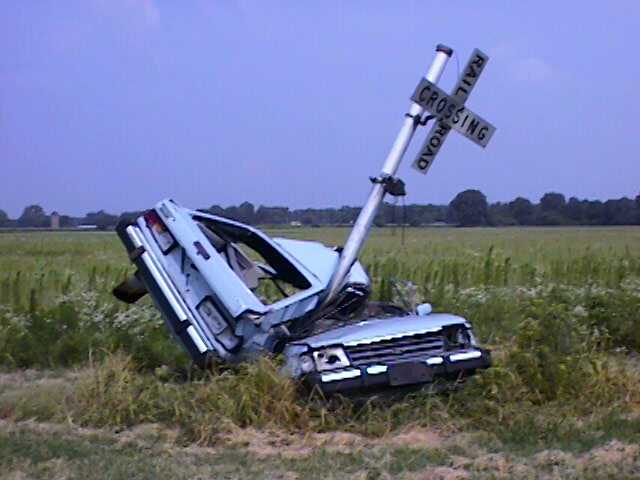June means it's graduation time for
high schools throughout the country. As predictable as senioritis is an event
that many school districts build into their school calendars called Project
Graduation. Usually organized by a group of caring and concerned parents,
Project Graduation is designed to allow graduates to celebrate their
achievements on their graduation night in a controlled, alcohol and drug-free
setting.
The real purpose, of course, is to keep the children alive so their
parents don't lose them to a tragedy on graduation night, a noble, sensible and
practical goal. No parent wants to see his child's life snuffed out just as his
real life is beginning. And to its credit, Project Graduation does what it was
designed to do.
For one night anyway.
What happens the next night, and the
nights thereafter (like those in college),
when the party urge is
still there, but there is no controlled environment?
The answer? Tragedies, usually.
Some are immediate and some don't
happen until months or even years later. The reasons for the tragedies are
many, but principal among them is the way our society teaches its youth about
alcohol--and especially about beer. When parents and nearly everyone else in
authority tells them not to do it, you have a recipe for guaranteed abuse.
Our society is, in large measure, to
blame for crafting that deadly recipe. We have made this ancient, nutritious
beverage a taboo rather than an adjunct to our lives. Beer is probably the
world's favorite fermented beverage today, and for the same reasons it was to
the ancients. It was--and is--a healthful, nutritious beverage, when enjoyed in
moderation, and especially in conjunction with food. Fasting monks--who make
some of the world's best beer--used it to get through fasting periods, all the
while deriving
the nutritional
benefits of "liquid bread."
No sane person, however, denies that
abuse of it can bring negative consequences. How, then, to educate against its
abuse while accepting the many benefits beer can provide? It is true that adults abuse beer, but it is
very likely that they do so because they were not educated in its appropriate
use when they were young. So the cycle continues.
Regulation of the use of beer is
absolutely essential. While many ancient cultures valued beer, only
civilizations that history anoints as “great” regulated it. Regulation,
however, does not mean denial as taboo, and that's what we’ve been saying for generations
to our young people. The effects of that misguided policy are evident in the
headlines--and the obituaries--of our newspapers.
Hence, by their ignorance and ours, our young
people compel us to initiate things like Project Graduation. Perhaps if we took
a different tack--from very early on in youth-- a Project Education, if you
will, we could obviate the need for one-night, stopgap measures like Project
Graduation, which, for all its good intentions, is simply a temporary feel-good
solution.
In Belgium, where beer occupies a
status much as wine does in France, young schoolchildren are given beer during
their recesses instead of milk. To be sure, it’s not a strong alcohol beer. In
fact, it's usually around three or four percent, but it is beer notwithstanding
and is thus far more nutritious than milk.
More importantly, its distribution
by the authorities indicates that it has a legitimate place in society. That's
an important lesson for youth to learn, and it's not one that American youth
are usually taught. American youth see beer as something to be done illicitly,
because we have told them to "Just Say No!”
Perhaps that is why most Europeans,
especially those who have grown up with wine and beer readily available at
meals, have come to see alcoholic beverages as a food complement rather than as
an illicit drug designed to encourage--and excuse-- asinine and and often
dangerous behavior.
American culture waits until the
magical age of twenty-one to say that beer is OK, which guarantees nothing beyond
taking the excitement out of procuring and drinking beer on the day after the
21st birthday. By that time, perhaps the only lesson that has been learned
(beyond how to lie about acquiring and using it) is that we drink beer for one
reason: to get plastered.
Sorry MADD moms. Simply put, America
needs to rethink its approach, because the one we’re using has failed
miserably.
Does that mean that we should
substitute beer for milk at every American elementary school? No--at least--not
yet. For one thing, most people would say beer doesn't go as well as milk with
cookies.
But that’s only because they don't
know that there are beers that go very well indeed with cookies. Like our many
of our funnel-headed adolescents, these folks need Project Education, too.







No comments:
Post a Comment